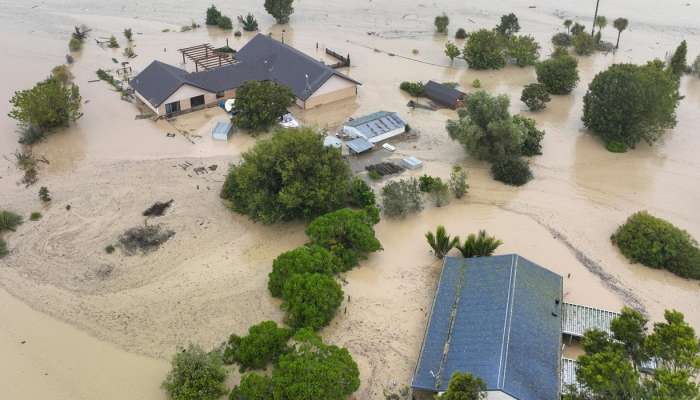
Auckland: New Zealand's authorities on Wednesday confirmed the deaths of four people while thousands have been displaced in the aftermath of Cyclone Gabrielle which led to floods, destruction of roads, helicopter rescue missions and a shortage of essential supplies.
Police also said that they had still been unable to contact over 1,400 people by Wednesday afternoon.
Gabrielle, which made landfall in the country on Sunday before wreaking havoc on the east coast of the North Island, had weakened and moved away by Wednesday morning.
"We thankfully are through the worst of the storm but we're not out of danger yet," Emergency Management Minister Kieran McAnulty said during a media briefing.
"This is a significant disaster and is going to take many weeks for those areas most affected to recover," he said, adding that the country was in it for the "long haul."
Not out of danger
Speaking at a televised media briefing, Prime Minister Chris Hipkins announced that all people stranded on roofs because of floodwater have been rescued. He warned that the situation remains dangerous despite improving weather.
"Please don't return to your homes until you have been given the all clear to do so," Hipkins said.
Three bodies found
Of the four deaths that authorities confirmed, one body was found in a beach community near Auckland, close to where a fire fighter went missing on Sunday after a landslide.
Three other bodies were found in the Hawke's Bay region on the east coast of the North Island — one of the worst hit regions.
Three quarters of New Zealand's 5 million population lives on the North Island.
Evacuations continue
Rescue teams continue to help those affected by the storm which caused incessant rains and flash floods. The government is said to be especially worried about the Hawke's Bay region which is full of agricultural land, rugged mountains and hard-to-reach towns.
"There's still gaps in our knowledge. Some areas haven't had communications for a couple of days and we know there's a shortage of food and water," McAnulty told a radio channel.
Around 140,000 people remain without electricity, despite power being slowly restored in the North Island area.
Some 300 people were rescued by military personnel in helicopters, from rooftops of homes and buildings.
The government, on Tuesday, declared a state of emergency — the third in the nation's history.
Coastal communities witnessed 20 centimeters of rain and tidal waves which were 11 meters (36 feet) tall — just in the first 24 hours of the storm. Several towns were already waterlogged from record rainfall two weeks ago.